Three years after the largest protests in American history against police brutality and racial injustice, it can be difficult to see where we stand today when it comes to finding a different path in our approach to public safety. REIMAGINING SAFETY is an independently produced documentary directed by Matthew Solomon, who interviewed a number of luminaries pushing new ideas in the worlds of alternatives to policing and incarceration. We sat down with the director to talk about the powerful concepts shared in his documentary. [This interview has been edited for length and clarity]
Can you talk a little bit about how this documentary came to be? How did you come to make it and how did you choose your interview subjects?
Matthew Solomon: REIMAGINING SAFETY is essentially an intersection of my passions, talents, and life experiences. I was born and raised in Los Angeles and saw at an early age that my experience of the world as a cis-hetero white man was different from many of my friends. I was a music student at USC in the early ‘90s and was taking sociology classes when the Rodney King beating, the LA Riots, and the O.J. Simpson trial all happened. So I was literally learning about systemic racism as the effects were playing out in front of me. Fast-forward 30 years and I was making films and had developed skills in providing conflict resolution services for organizations, I was traveling a lot, and then the pandemic hit. In March 2020, my mom passed away from breast cancer, my uncle died from COVID, and the whole country shut down. I decided to go back to school to complete a BA degree and then went into a Master’s in Public Administration program at Claremont Lincoln University. This time, I was learning about sustainability and how cities function while protests against police brutality were happening. As I was applying my coursework to issues regarding policing and incarceration, I opted to create this documentary as my final capstone project. As far as the interview subjects, much like casting a scripted film, there were certain participants I wanted to include and certain perspectives. I knew I wanted to interview Alex Vitale, for instance, because I had been citing his work throughout my MPA program. As I got further into the project, people would connect me to other participants until I reached a point where I had what I felt I needed. And, of course, I was also running out of time.
You start REIMAGINING SAFETY interviewing Los Angeles District Attorney George Gascon. He’s a figure I and many other LA activists have complicated feelings about, because the promises of his campaign were so great, and the way he’s struggled to live up to them have been so disappointing at times. On the other hand, he’s become a figure the right viscerally despises. Why did you choose him as the first person you feature in the documentary?
MS: In one of my courses at Claremont Lincoln, I watched a TED Talk by a former prosecutor named Adam Foss. He talked about the power of prosecutors in shaping the futures of people who have been arrested. I knew I wanted to include this perspective in the film because it was really important for me to show what is possible versus only naming the problems. A teacher of mine suggested I interview the DA because he is a “progressive prosecutor.” When I was interviewing Dr. Jody Armour, he happened to be co-hosting an event with him and helped connect me. Honestly, I did not know much about him prior to the interview and was really touched by his love for people, the self-reflection on his time as a police officer, and his willingness to make changes. It is interesting, and frustrating, how polarizing his presence is because the right wing were blaming him for crimes and things before he even took office. And I know that there are people in the DA’s office and law enforcement who are hyper-critical of his progressive policies and say he is way too lenient. It really does seem to be an impossible situation that he is in with so much resistance. As several of the abolitionists in the documentary say, this is a long game. Both Nikki Blak and Dr. El Jones talk about the personal and internal work that people need to do in order to be able to function outside of a system of punishment. That said, if you really listen to what Gascon is saying in the documentary, he is describing restorative justice and abolition—at least a path towards abolition. Mostly, though, he is talking about humanity and illustrating that human beings are being affected by these harmful policies and practices and that, overwhelmingly, adequate support and services make more of a positive difference than putting people in cages.
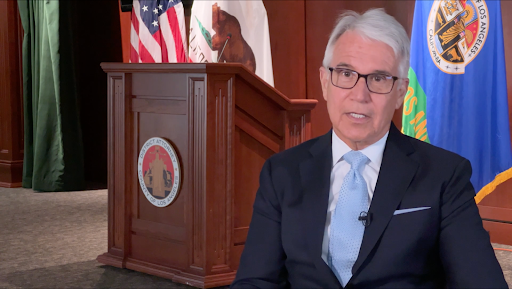
One of the most powerful scenes is when Jody David Armour draws a connection between incarceration and suicide rates. Can you touch on that a bit and why it’s important in our understanding of the real impacts of policing and incarceration?
MS: Dr. Armour really humanizes the effects that policing and incarceration have on people that go beyond the surface results many of us are aware of. He has had many direct experiences as a child and as an adult, and the toll his father’s false imprisonment had on his family is really sad and not uncommon. Jose Gutierrez speaks to this in the film also. His perspective is from the point of view of a mental health professional and social worker. The suicide element that Dr. Armour speaks to helps to paint a picture of how bad the implications are of locking someone up. It’s not just the time in a cage, it’s not just the lack of available support once someone is released: there is a mental and emotional toll that can drive people to take their own lives. And, as Dr. Armour describes, there is also a mental and emotional toll on the loved ones of people who have been incarcerated. It is really quite an insidious web.
How did you get a former career police officer to agree to be a part of this documentary?
MS: Hadiya is one of the people I interviewed that came through an introduction from another participant. I really wanted to include the voice of a police officer. I was nearing the end of my interviews and when I completed the interview with Sennett Devermont (aka Mr. Checkpoint), he asked if I needed anyone else. I mentioned a police officer would be great and he introduced me to Hadiya. She is such a great contributor to the film because she talks about how she had this idealized version of policing and then got hit by the reality of how the training and the mindset of police aren’t about making the public safer but more about cops maintaining control. It is not “protect and serve” it is “command and control.” She also worked in internal affairs and talks about that experience as well, and how it became very evident that there was a constant need to check her integrity on the job. Most of the incidents she was dealing with demonstrated a lack of integrity on the part of the officers involved.
Why did you choose not to interview any formerly incarcerated people about their experiences?
There were some people that I wanted to interview that were not available or we just couldn’t connect. I knew I wanted to include activists, prosecutors, mental health professionals, politicians, academics, and a police officer. Some of the folks I wanted to interview had been formerly incarcerated and the timing just didn’t work out. I am glad, though, that several of the people I did interview work directly with people who have been incarcerated. I know it is not the same as directly including their voices. Dr. El Jones has been working with incarcerated people since she was 14 years old. Jose Gutierrez works with people who are and have been incarcerated.
Why do you think it’s important to walk an audience through the actual day-to-day functions and impact of policing and incarceration rather than the versions people are used to seeing in media?
MS: In my work and experience as a conflict resolution facilitator, I know that when people can truly get another person’s lived experiences and see the world through their eyes, barriers come down and people connect. When people experience that connection, empathy becomes present and positive changes and partnerships can happen. The media shows a lot of the extremes and predictable narratives, but the day-to-day effects are really what shapes how people live, and unfortunately die. A majority of people who had not been involved in social justice were shocked by what they saw with the video of George Floyd’s murder. There was a big up-surge in support for changes to policing. And then more videos and hashtags followed, and a lot of those same people either went numb or became more concerned about the narrative of rising crime rates than they were in continuing to explore what defunding or abolishing the police could mean. The blowback against social progress is really swift and effective. We saw BLM protests all over the world. Then, there were “rising crime rates” and “we can’t defund the police now” and “Critical Race Theory is teaching your 6-year-old white kids to hate themselves” and on and on. As a good friend of mine said to me several years ago, “white people almost always have their breaking point where they will stop fighting and go home if the fight becomes too inconvenient or too uncomfortable.” The anti-racism teachers that I work with, like Nikki Blak, all predicted that the support would drastically drop off and they were correct.
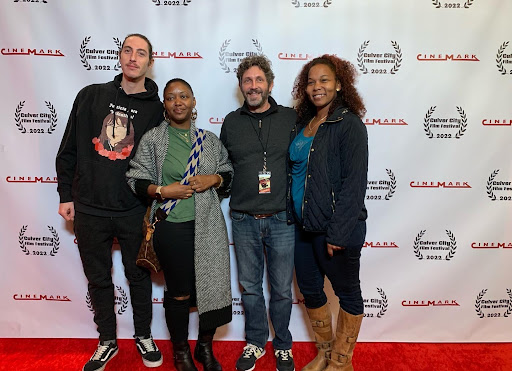
Culver City Film Festival – Sennett Devermont, Nikki Blak, Matthew Solomon, Hadiya Kennedy L-R)
Something that Hawk Newsome says near the beginning as he’s participating in a large march of Black Lives Matter supporters is that people who were participating in those marches aren’t used to experiencing freedom in that way. There was a sense in 2020 that people were being awakened to this deeper political consciousness, but it’s hard not to feel like that energy has evaporated in 2023. Do you think that’s true, and if not, where do you see that energy being channeled today?
There is a combination of things. On the one hand, it seems like the energy has dropped; however, if you look at the recent elections here in Los Angeles, there were a number of abolitionists and progressives who were elected to office. Gina Viola, who is interviewed in the film, talks a lot about her experience campaigning for Mayor and how most of the residents she spoke to recognized that policing and incarceration do not work in terms of keeping us safe. So I think there is still that desire for change. A lot of the fire settled down. Chelsea Byers, who was just elected to the West Hollywood City Council, asked me if I have hope that things can change. I had to think about it for a moment and the answer is yes. I do have hope, I am working everyday to do what I can to help support that change. And, honestly, my desire for this documentary is that it be used as an example for what is possible and how practical and accessible abolition really is.
Where can people watch the documentary and support your work?
Our official West Coast premiere is Friday, February 3rd at the San Pedro International Film Festival. It is open to the public, tickets are free, there will be a panel discussion after the film, and so the best way to support is to attend the festival. After that, subscribe to the website, follow the socials, and request screenings. Without “Reimagining Safety” being released, we have already had requests for screenings with social justice organizations and universities. So, follow the film, watch the film, and help spread the word. Reach us at www.ReimaginingSafetyMovie.com.
There will be additional screenings of REIMAGINING SAFETY at Scripps College on February 16th and Decarcerate Memphis on February 23rd. You can reach Matthew Solomon on Instagram and Twitter!


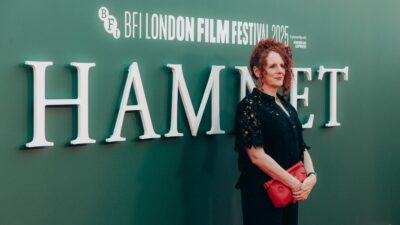
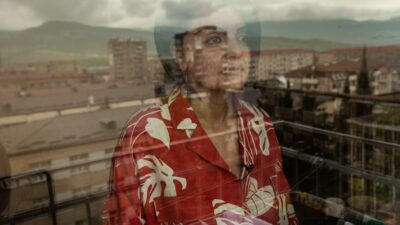

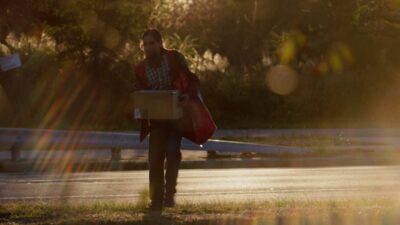

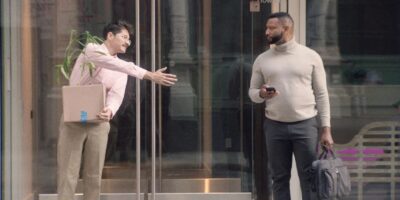
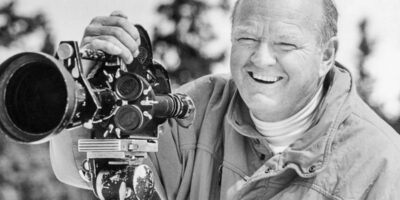
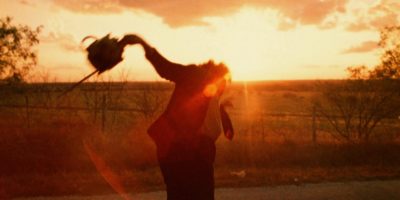
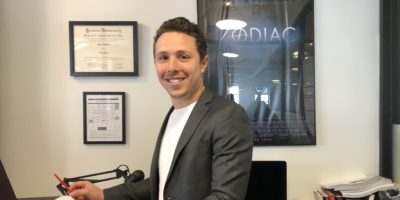




Comments